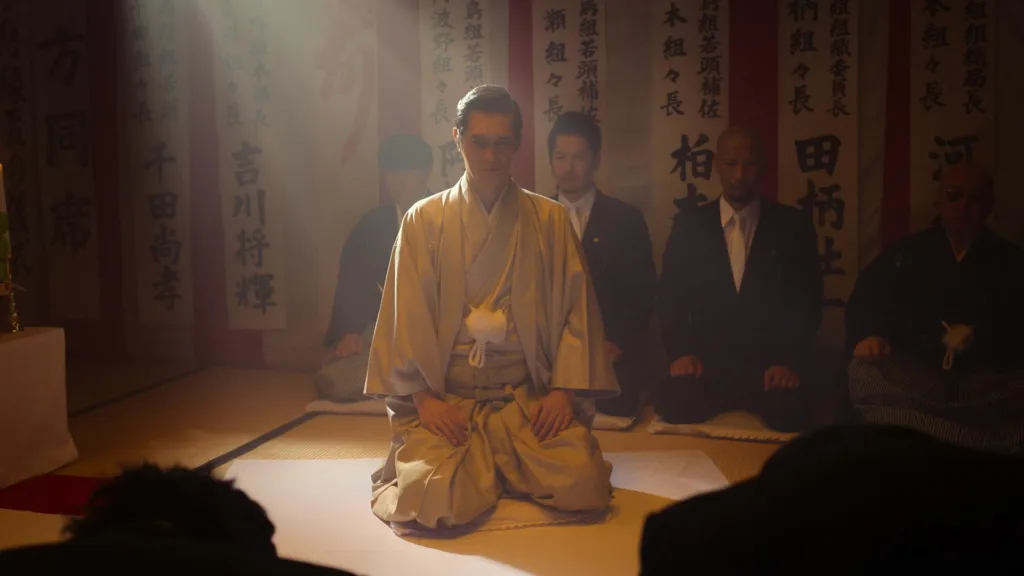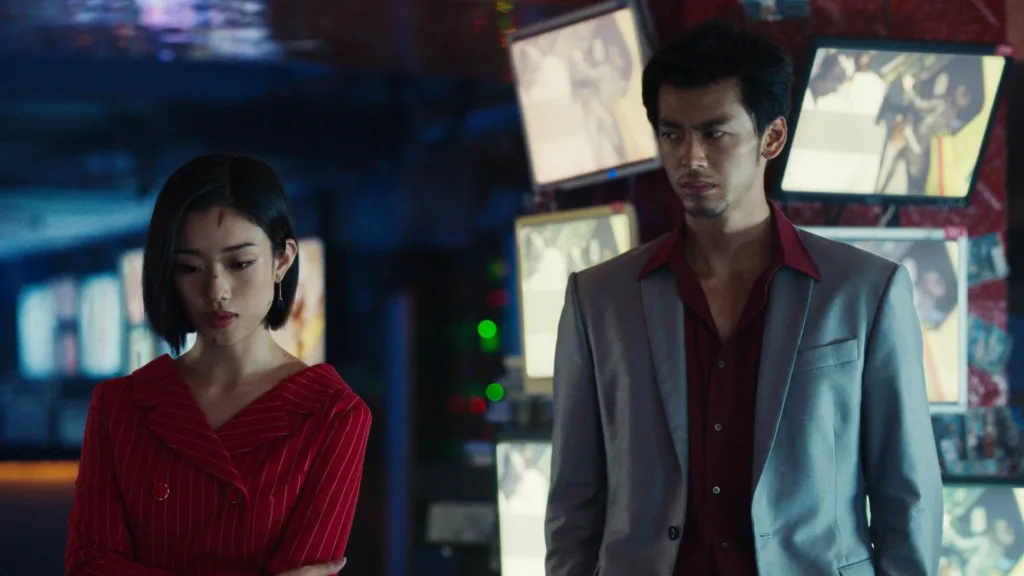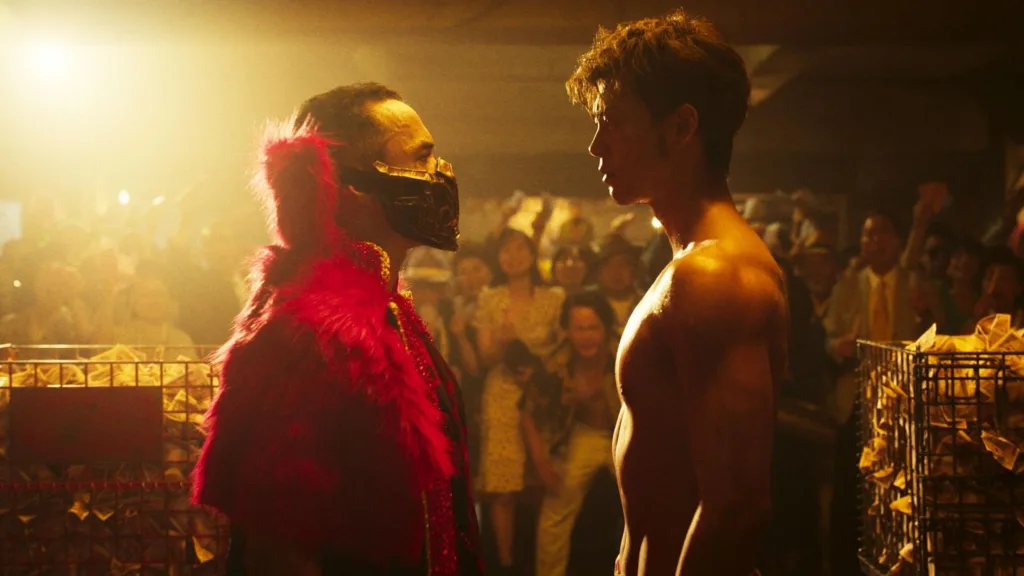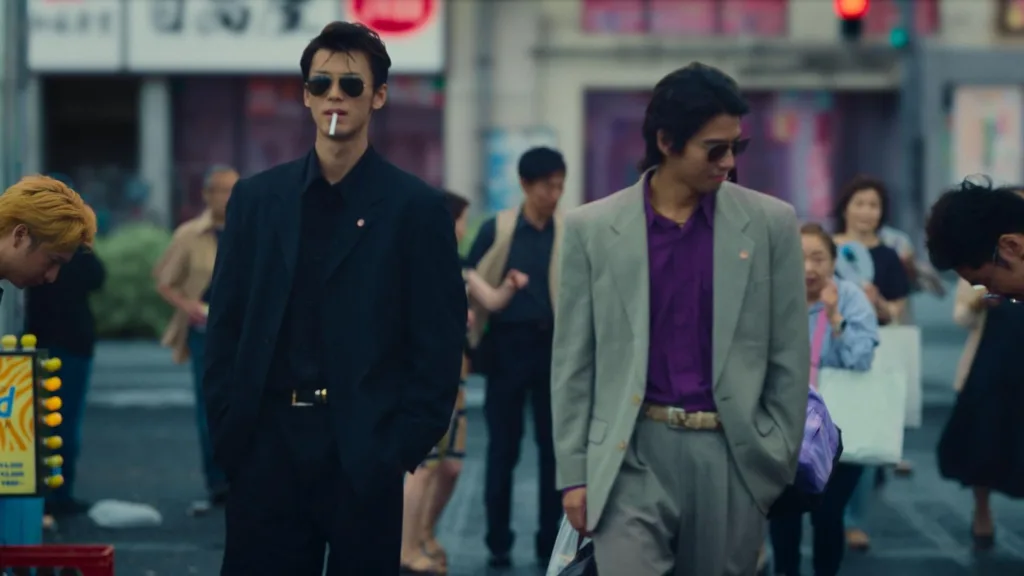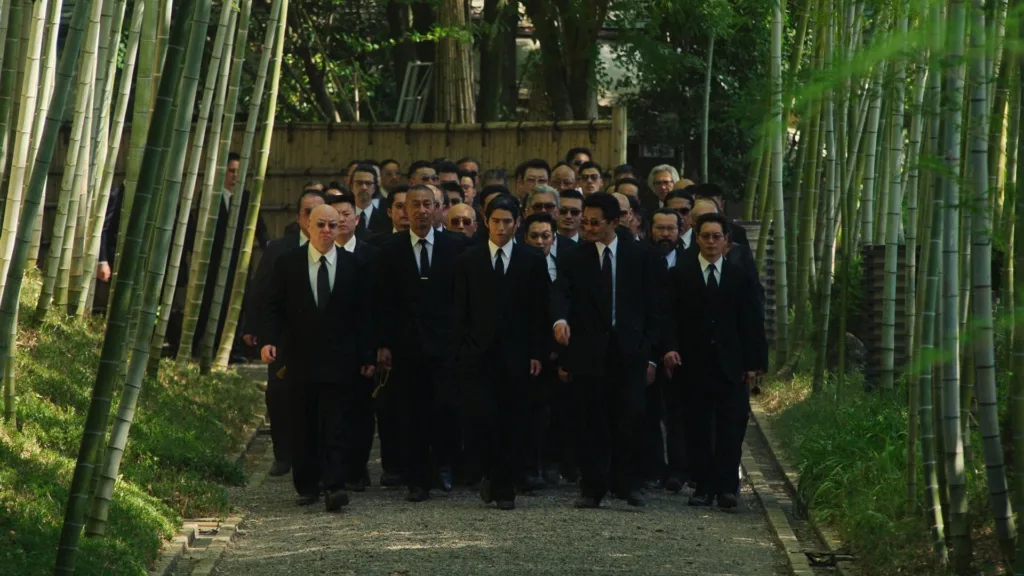It’s not easy to go from a popular video game to a live-action show, especially with a title as well-known as Yakuza, which is now called Like a Dragon. Since the beginning, gamers have been hooked on this series, which combines intense action, deep writing, and a unique sense of humor all set in Japan’s criminal underworld. The Yakuza games are known for having complex plots and interesting characters. The stories unfold in the fictional city of Kamurocho, which is as much a character as the people who inhabit it.
Like a Dragon: Yakuza is spread out over six parts on Prime Video. It tries to catch the spirit of the 2005 game, especially Kazuma Kiryu’s story. The show tries to tell a story in two different time periods by showing Kiryu’s life as a youngster in 1995 and again when he comes back to Kamurocho in 2005 after serving a long jail term.
But the remake has a hard time balancing the complicated emotional depth of the original with the needs of a more standard TV structure. Some of the style from the games is still there, but the general execution is often quiet and lacks the lively chaos that fans love. In the end, the show makes viewers wonder what it is—does it stay true to the original, or does it only touch on the things that made the brand popular?
Navigating Time: The Dual Narrative of Like a Dragon: Yakuza
Like a Dragon: Yakuza employs a dual-timeline format that alternates between 1995 and 2005, thereby amalgamating two significant periods in Kazuma Kiryu’s life. By taking this method, the show can look at both Kiryu’s childhood and the complicated problems he faces now, ten years later.
The story starts in 1995 with a risky theft from an arcade. Kiryu and his friends from the Sunflower Orphanage attempt to steal money from a Yakuza-run playground. Their act of defiance starts a chain of events that connects them to the Dojima family and completely changes their lives. Not only does the heist show how careless the characters are when they are young, but it also helps Kiryu grow from a harmless child into a tough yakuza. The consequences of their actions shape the story, altering their identity and motivations.
After ten years in jail, Kiryu emerges in 2005, facing accusations of being a killer. He finds himself back in a world he tried to leave behind because of a 10 billion yen theft from the Ohmi Alliance. This side story immerses Kiryu in a plot that could ignite a yakuza war, adding an additional layer of drama. A demon killer story raises the stakes even more by having a masked figure kill anyone connected to the case. This adds a thriller-like stress.
The story is mostly about how the relationships between Kiryu, Nishikiyama, Yumi, and Miho change over time. Because of their shared past and the choices they’ve made, their relationships are tense and full of both longing and betrayal. The difference between their happy childhood and the harsh realities of adulthood strengthens the show’s emotional range.
But the pace isn’t always smooth, especially in the first few episodes where the rapid jumps between timelines can make things less clear. The parallel stories give the characters a lot of room to grow, but the show sometimes fails to deliver satisfying payoffs. Some important parts of the story, like what happens after the heist and how Kiryu’s relationships change, feel rushed or not fully explored, leaving viewers wanting more links and answers. Ultimately, the dual storyline creates an intriguing framework, yet its poor execution diminishes the story’s emotional and thematic richness.
Character Depth and Performances in Like a Dragon: Yakuza
Character relationships are crucial to Like a Dragon: Yakuza, especially as the series deals with the tricky emotions of having two storylines. Ryoma Takeuchi portrays Kiryu Kazuma as the protagonist. In 1995, Ryoma Takeuchi portrayed Kiryu as a young dreamer, yearning for freedom and fitting in. His growth into a tough yakuza in 2005 shows a deep character arc marked by loss and the weight of decisions made in the past. Takeuchi does a fantastic job of showing this duality by making Kiryu seem like both a naive dreamer and a tough warrior, showing the inner struggle that drives his journey.
Between the two timelines, Kento Kaku’s portrayal of Nishikiyama undergoes a significant transformation. At first, he is Kiryu’s faithful friend and a source of humor. But as the years go by, he turns into a cold and calculating yakuza figure. Kaku gives an especially powerful performance, showing how a man feels pulled between loyalty to Kiryu and the draw of power. This added complexity gives their friendship more meaning, which makes their final fight very dramatic.
Yumi and Miho, played by Yumi Kawai and Hinano Nakayama, are crucial to the story’s emotions. Yumi’s character changes from a helpful friend to a more complicated person involved in yakuza schemes, and Miho stands for the sacrifices people in their circle make. However, the show occasionally overlooks their development, resulting in a less thorough exploration of their promise compared to Kiryu and Nishikiyama’s.
Toshiaki Karasawa’s Kazama Shintaro is a big part of the story as a father figure and guide who represents the yakuza’s mixed morals. His effect on Kiryu is clear; he shapes his morals and choices throughout the series. Kazama’s complex character adds to Kiryu’s reasons for doing what he does, bringing out the theme of family ties in the criminal underworld.
Even though he doesn’t appear in many episodes, Munetaka Aoki’s Majima is a fan favorite character. Even so, Aoki adds a sense of chaos and uncertainty to the story, which reminds viewers of how important the character is to the series.
The actors’ relationship is a big part of how these figures come to life. Takeuchi and Kaku have a strong bond that makes their friendship more complicated. The interactions with the supporting cast aren’t always very deep, but there are times when conflict and friendship really shine through. Overall, the acting is good, but the character growth isn’t always deep. Some storylines feel rushed or unfinished, leaving viewers wanting to learn more about these complex characters.
Production Values and Atmosphere in Like a Dragon: Yakuza
Like a Dragon: Yakuza’s production values are a big part of its appeal; they do a great job of recreating the lively and busy Kamurocho area. The set design really gets the feel of this made-up Tokyo area, with its bright lights, busy streets, and strong sense of life. Paying attention to aspects that are special to the years 1995 and 2005 makes the timelines more real, from the flashy fashion of the mid-1990s to the more understated, smooth styles of the early 2000s.
Costume creation is a big part of making characters who they are and showing what life was like in each age. The main character, Kiryu, stands out in his famous gray-and-red suit. The other characters wear clothes that show what level of yakuza social rank they are in. This careful attention to detail even shows up in the set art, which includes old video games and real signs that pull viewers into the world of Kamurocho.
The emotional tone of the stories is successfully conveyed through the choices made in cinematography. The camera often stays on characters’ faces during important scenes, which adds to the excitement. But the action scenes and fight routines aren’t all that great. There are intense fight scenes in the series, but they don’t always have the flow and energy of fight scenes in video games. This makes viewers want more dynamic fight scenes.
The sound design and music score add to the mood with a mix of dramatic orchestral pieces and background noises that make you think of city life. Overall, the production quality shows a good budget and a dedication to realism. However, the show sometimes has trouble balancing its dramatic tone with the lively spirit of its source material, creating an atmosphere that feels more serious than the franchise’s fun beginnings.
Game-to-Screen Adaptation Analysis: Bridging the Gap
Taking a lot of ideas from the popular video game series Yakuza, Like a Dragon: Yakuza has a lot of different vibes. The source material has a good mix of dramatic, funny, and silly parts. However, the show leans heavily on theatrics and leaves out many funny parts fans love. The general experience changes because of this change, turning it into a typical crime story instead of a lively look at yakuza life.
There is also disagreement about how to handle motion scenes. People love these games because the fighting is smooth and fun, and there are a lot of crazy moves and unique styles. But the series needs help capturing this energy. Fight scenes can feel strangely staged and need more excitement to make the gameplay what it is. Fans also miss the signature side activities of the series, such as singing, weird mini-games, and strange side tasks, which take away from the intense experience they expect.
The adaptation changes some things from the book, often cutting down on character arcs and plotlines to make the story easier to follow. This can help newbies understand the story better but could mean losing the games’ rich complexity and meaning. Some parts, like Kiryu’s sense of place and the emotional stakes in his relationships, translate well, showing that solid stories are possible.
The series is easy for people who aren’t fans to get into, but it might not have the charm and quirks that make the games so fun. The serious tone and focus on the main plot might turn off viewers who need to be used to the franchise’s fun vibe. While Like a Dragon: Yakuza does have a story that makes sense, it does so at the expense of the complex and varied experience that fans have grown to enjoy.
Themes and Subtext in Like a Dragon: Yakuza
In Like a Dragon: Yakuza, the story is about how family ties, loyalty, and the warping effects of power work in the yakuza underground. The show doesn’t have the crazy fun and lively energy of the video game series, but it makes up for it by going into more detail about the characters’ moral dilemmas and how they change as people.
At the center of the story are Kiryu, Nishikiyama, Yumi, and Miho’s complicated relationships with each other. They are like a found family, connected by love and the illegal activities that have shaped their lives. The show looks at how these bonds are put to the test and stretched as the characters try to find their way through the dangerous Tojo Clan order. Nishikiyama’s growing desire and Kiryu’s unwavering sense of duty meet, creating a sad split that lasts for decades.
In addition, the show deals with how power in the yakuza system can be harmful. As the characters move up, they have to deal with the moral choices they have to make in order to keep their jobs. The way Nishikiyama changed from a happy teenager to a cruel, cunning criminal is especially shocking, showing how the group he used to want to serve him turned him bad.
Along with these character-driven themes, the show paints a complicated picture of yakuza culture by looking at its codes of honor, the web of friendships and rivalries, and the fuzzy lines between what is illegal and what is acceptable in society. Instead of giving simple morals, the show gives the characters’ decisions and actions a moral uncertainty that makes viewers question what they think they know.
In the end, Like a Dragon: Yakuza may not have the same exciting energy as the video game, but it makes up for it by showing how the characters’ personal journeys and the moral problems that come with working in organized crime are explored in a very interesting way.
Final Thoughts
As a whole, Like a Dragon: Yakuza is a mixed bag that could have gotten the spirit of the original work. Even though it has excellent production values, a great cast, and an exciting look at the moral problems its characters face, the series fails to capture the unique tone and energy of the Yakuza video game series.
As a remake, the show makes a lot of changes to the original story. It chooses a more grounded and severe tone, often at odds with how chaotic the games are. The lack of the series’ signature mix of crazy action, strange sidekicks, and absurdist humor makes people miss the games’ uncontrolled craziness that has made them so popular.
However, as a crime drama on its own, Like a Dragon: Yakuza has some intense moments, especially when it looks at the relationships between the characters and how power corrupts people in the yakuza order. The performances, especially Kento Kaku’s as the troubled Nishikiyama, make up for the slow pace and uneven story development.
The show’s most significant question mark might be who it’s meant for. The lack of franchise-specific features may let down fans of the Yakuza series, while newcomers may find it hard to get into the game because of the confusing plot and weak supporting cast. The show’s small success may depend on how well it can attract fans who want a more realistic and character-driven take on the Japanese organized crime theme.
Last but not least, Like a Dragon: Yakuza is a mixed bag that shows how hard it can be to bring a popular video game series to TV. The series has some interesting parts, but it only partially captures the full-on energy and wild personality that made the Yakuza games so famous.
The Review
Like a Dragon: Yakuza
Like a Dragon: Yakuza has an artistically stunning and emotionally powerful story. It looks at the complicated issues of loyalty, identity, and the hard facts of yakuza life. The remake has good acting and a well-thought-out world, but it tries to capture the original video game series's lively mood and exciting action. Some viewers might not like the serious tone, especially those not used to the series' mix of drama and comedy. Overall, it's an interesting, uneven, show that resonates more with die-hard fans than average viewers.
PROS
- As Kiryu and Nishikiyama, Ryoma Takeuchi and Kento Kaku give compelling performances that really show how their characters change over time.
- The replica of Kamurocho is beautiful and has period details that make it more realistic.
- Loyalty, identity, and forgiveness are all carefully studied themes that give the story more depth.
- The overlapping stories of 1995 and 2005 give important characters a lot of background information, which raises the emotional stakes.
CONS
- The series leans heavily on theatrics and doesn't always stick to the funny and lighthearted themes that make the games fun.
- The fight routine isn't as smooth and exciting as you'd expect from a series known for its fighting mechanics.
- Some characters, like Yumi and Miho, don't get as much attention as they could have.
- Fans like how involved the games are, but the lack of fun minigames and side quests takes away from that.









































